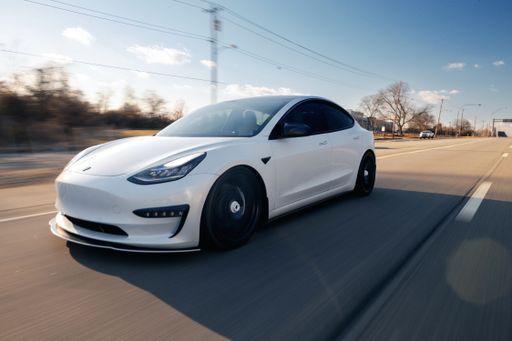EV Tax Credit 2023: Do You Qualify for the $7,500 Tax Break?
If you bought an EV in 2023, here's how to see if you qualify for the clean vehicle tax credit.

What are the requirements for the EV tax credit?
The Inflation Reduction Act made several major changes to the tax credit:
- There is a price cap on qualifying EVs. For passenger cars, the manufacturer's suggested retail price, or MSRP, must be $55,000 or less. For vans, SUVs and light trucks, the ceiling is $80,000.
- Beginning in 2024, vehicles that contain battery parts from "a foreign entity of concern" will be unable to claim any of the credit. For critical minerals, the cutoff is 2025.
- The manufacturing cap, which disqualified automakers that have manufactured more than 200,000 EVs, has been lifted.
- There is also a ceiling on the adjusted gross income to qualify for the credit.
How you can buy an EV in 2024 and get the credit at the same time
If you decided to wait till next year to buy your EV, you may be able to have your cake and eat it too. Starting in 2024, You can claim that credit when you purchase your clean vehicle at the point of sale, effectively lowering the vehicle's purchase price. This way, you won't have to wait till you file your taxes in 2025 to receive the credit.
Which EVs are eligible for the tax credit?
The Inflation Reduction Act broke the credit into two halves: You can claim $3,750 if at least half of the value of your vehicle's battery components are manufactured or assembled in North America.
You can claim the other $3,750 if at least 40% of critical minerals -- like graphite, lithium and cobalt -- are sourced from the US or a trade partner. (Both minimum requirements increase in the coming years, with battery components reaching 100% in 2029 and critical minerals maxing out at 80% in 2027.)
Nearly 4 dozen are eligible for one of or both credits under the new provisions -- including EVs from Chevy, Ford, Tesla and VW -- which are in effect through Dec. 31, 2032. The list will likely grow as manufacturers submit updated information and change suppliers.
Can I claim the tax credit on a used EV?
As of 2023, preowned plug-in electric and fuel-cell EVs qualify for a credit of up to 30% of their purchase price, maxing out at $4,000.
There are certain restrictions:
- The used EV tax credit can only be claimed once in a vehicle's lifetime. Subsequent owners will not be eligible.
- The MSRP of the car must be $25,000 or less.
- The car must be at least 2 years old. If you bought it in 2023, it must be from model year 2021 or earlier.
- Used vehicles purchased before 2023 are not eligible.
- The vehicle must have been purchased from a qualified dealer who reports the transaction to the IRS.
- The vehicle must otherwise meet the requirements for the EV credit.
Do individual states have EV tax incentives?
In addition to the federal EV tax credit, a number of states offer rebates for clean vehicles. Some can't be taken in conjunction with the federal credit, so be sure to get all the information before claiming anything.
- California's Clean Vehicle Rebate Project offers credits of between $1,000 and $7,000 for the purchase or lease of certain new EVs, plug-in hybrids and fuel-cell vehicles. EnergySage, an online marketplace for home solar-energy solutions, has a list of state rebate programs.
- The Energy Department's Alternative Fuels Data Center has information on various incentives offered by states, utilities and private organizations.
Can I get a tax credit for installing an EV charger?
The Inflation Reduction Act also extended the tax break for residential charging systems through 2032 and made it retroactive to Jan. 1, 2022.
It's worth $1,000, or 30% of the cost of buying or installing the system, whichever is less.
The credit now also applies to bidirectional charging equipment, which lets you use your EV to power other appliances or even your home. Not many models have that capability, but it can be handy in an outage or other emergency.

